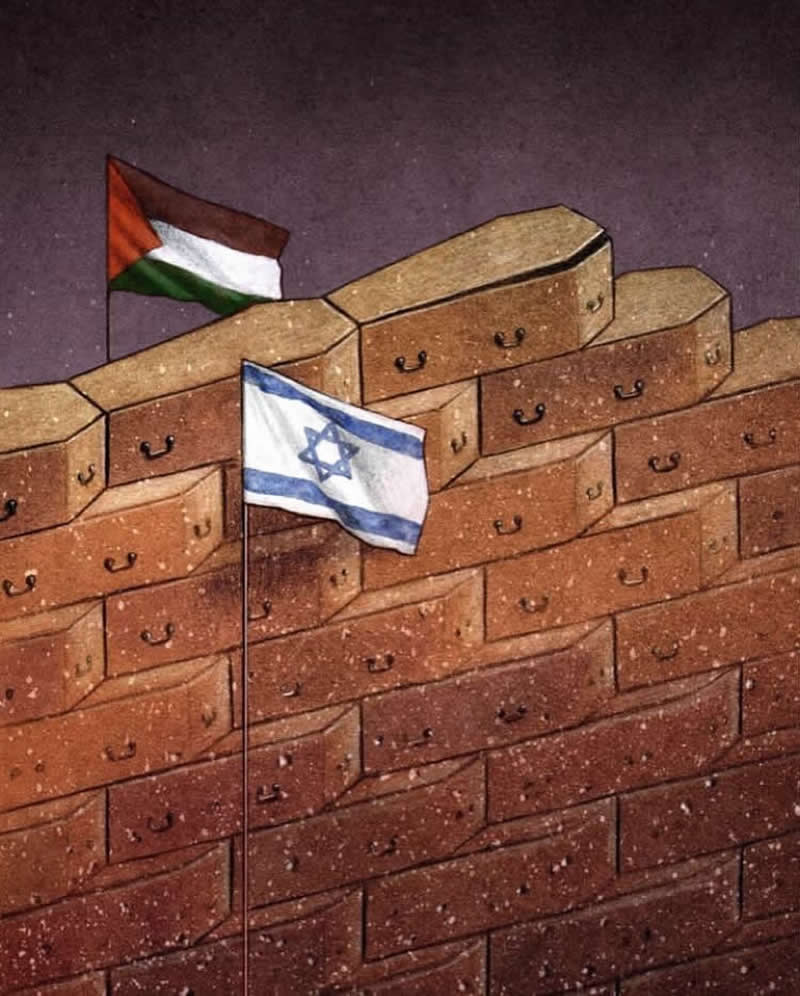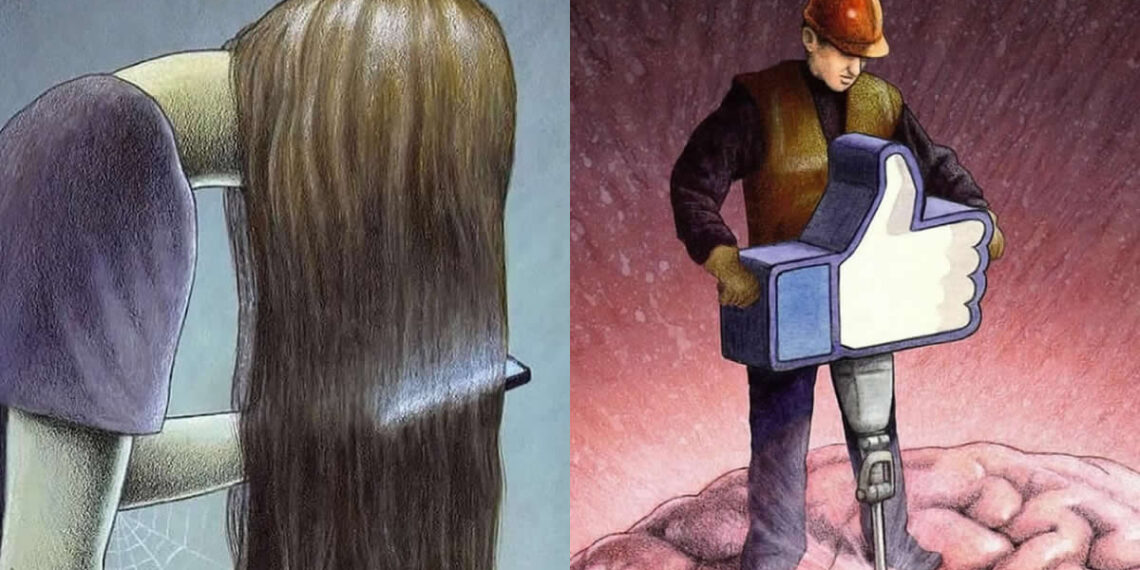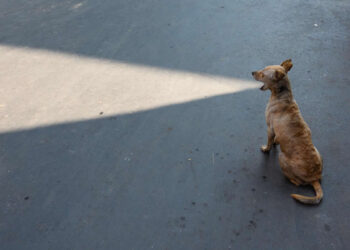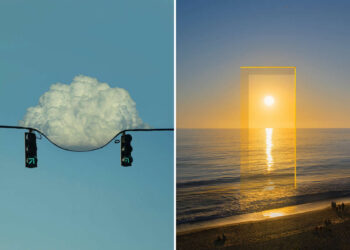Polish artist Pawel Kuczynski has spent the last two decades crafting visual metaphors that hit harder than any headline. His art doesn’t whisper—it screams the truth about our world, dressed up in irony and wit. From politics and capitalism to war, greed, and the digital traps we’ve built around ourselves, Kuczynski’s satirical illustrations hold up a mirror that’s both beautiful and brutally honest.
Each piece tells a story—no captions needed. You’ll see a man feeding on “likes” from a smartphone IV, or a soldier painting over destruction with a flag of peace. These surreal and thought-provoking scenes dig deep into modern contradictions. What makes his work so powerful is its simplicity: he takes the noise of our complicated world and distills it into a single, unforgettable image.
In a time when social media often blinds us with filters and distractions, Pawel’s art cuts through the fog. His illustrations remind us that we’re both the creators and victims of the systems we live in. With more than 100 international awards, he’s not just an illustrator—he’s a visual philosopher for the digital age.
These 35 satirical illustrations are more than just drawings. They’re wake-up calls wrapped in color and clever symbolism, confronting us with the truth we love to scroll past. Each piece exposes the irony of modern life, pushing us to question what we see, believe, and consume every single day.
You can find Pawel Kuczynski on the Web:
#1
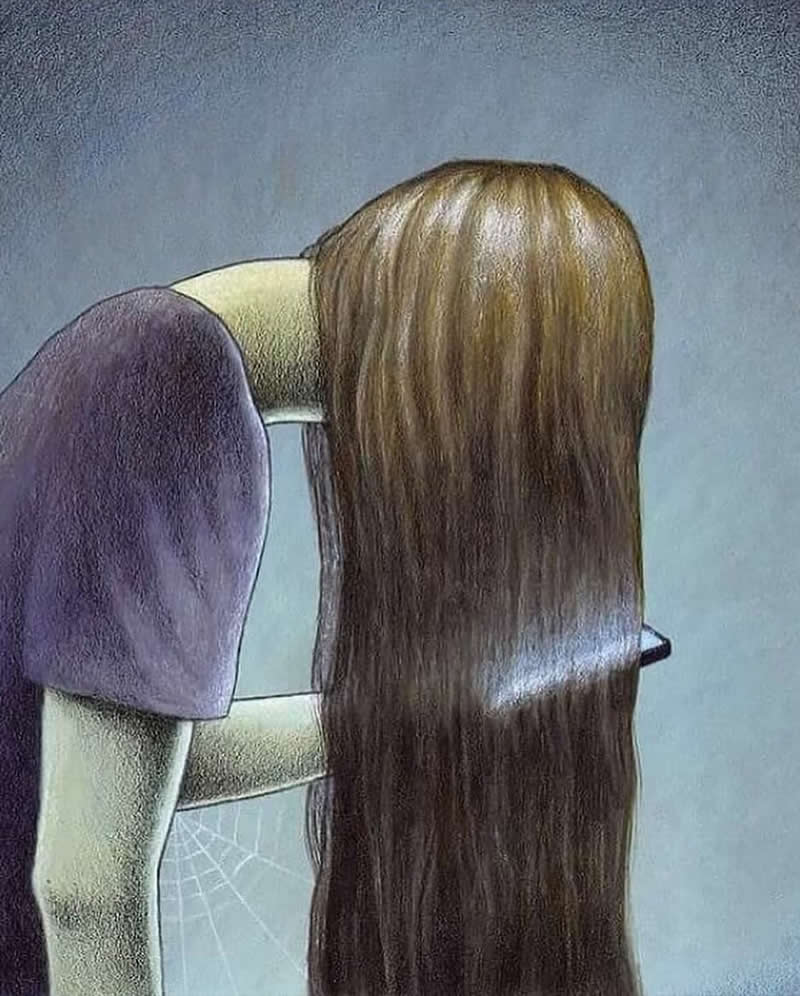
#2
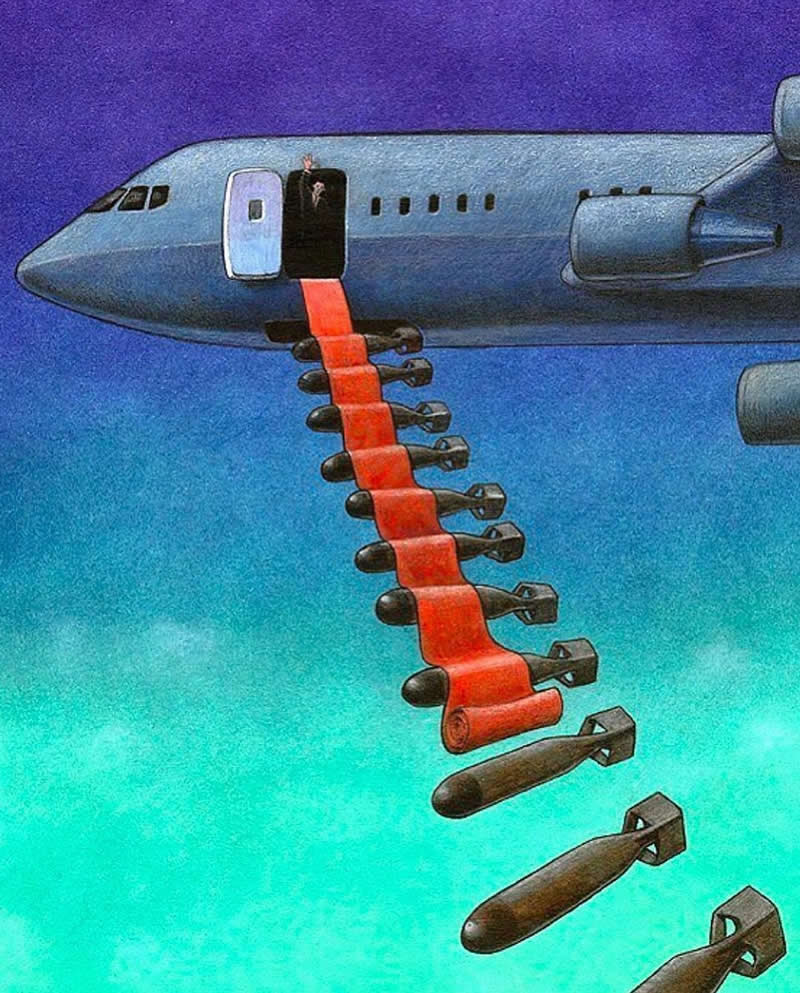
#3
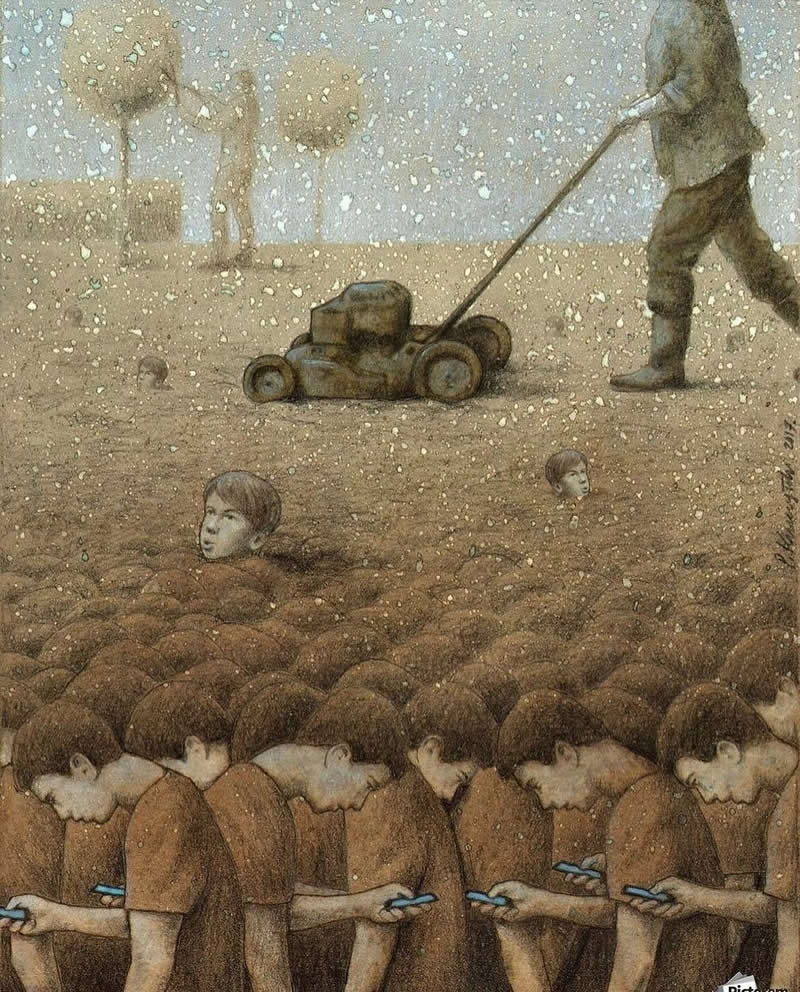
#4
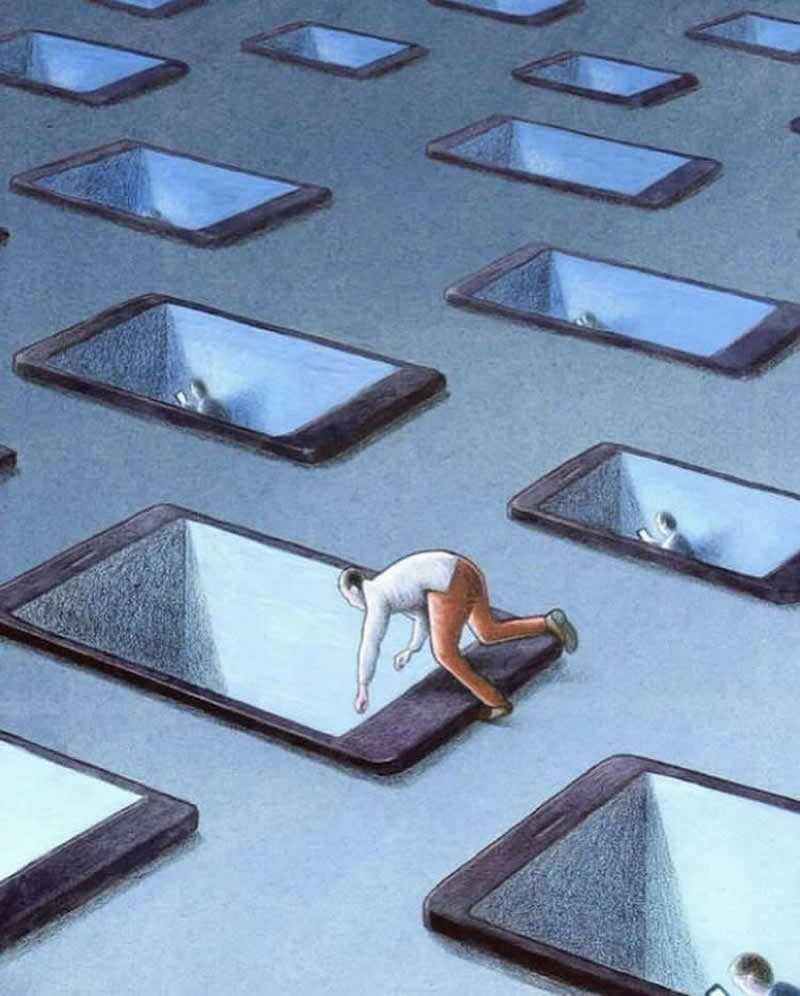
#5
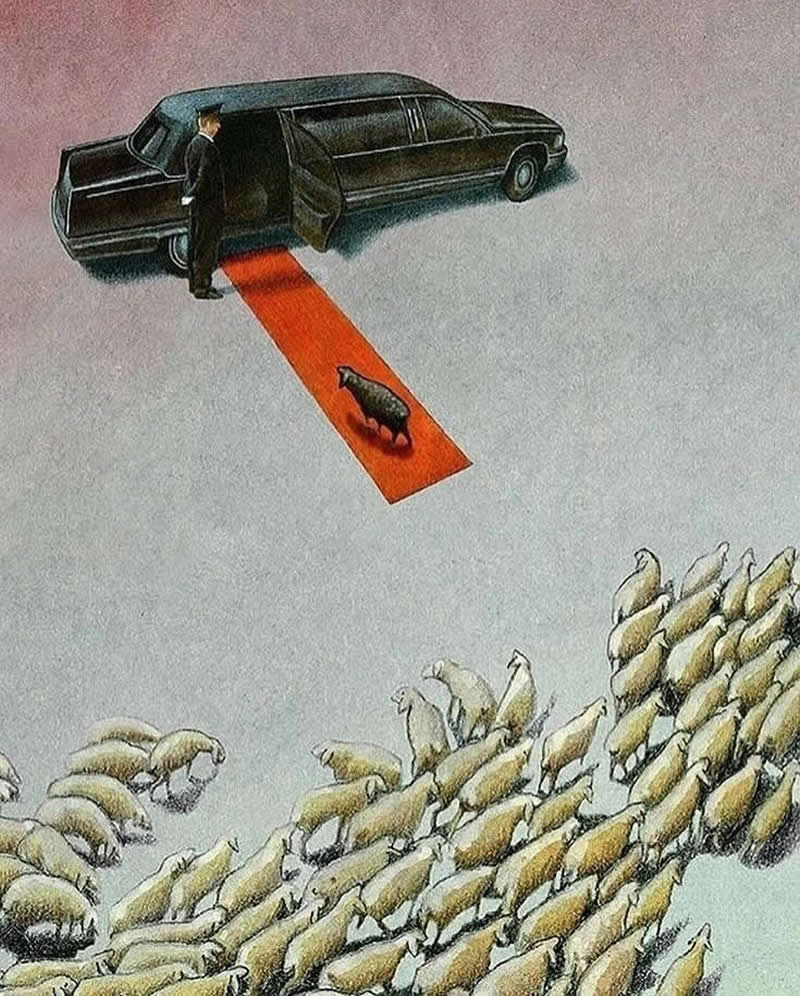
The Mirror of Society
Kuczynski’s art acts like a mirror—one that reflects the world’s absurdities back at us. His characters often seem calm, even while trapped in chaos, showing how normalized dysfunction has become. Whether he’s illustrating greed disguised as progress or ignorance wrapped in patriotism, his subtle storytelling reminds us that sometimes, the biggest jokes are the ones we don’t realize we’re part of.
#6
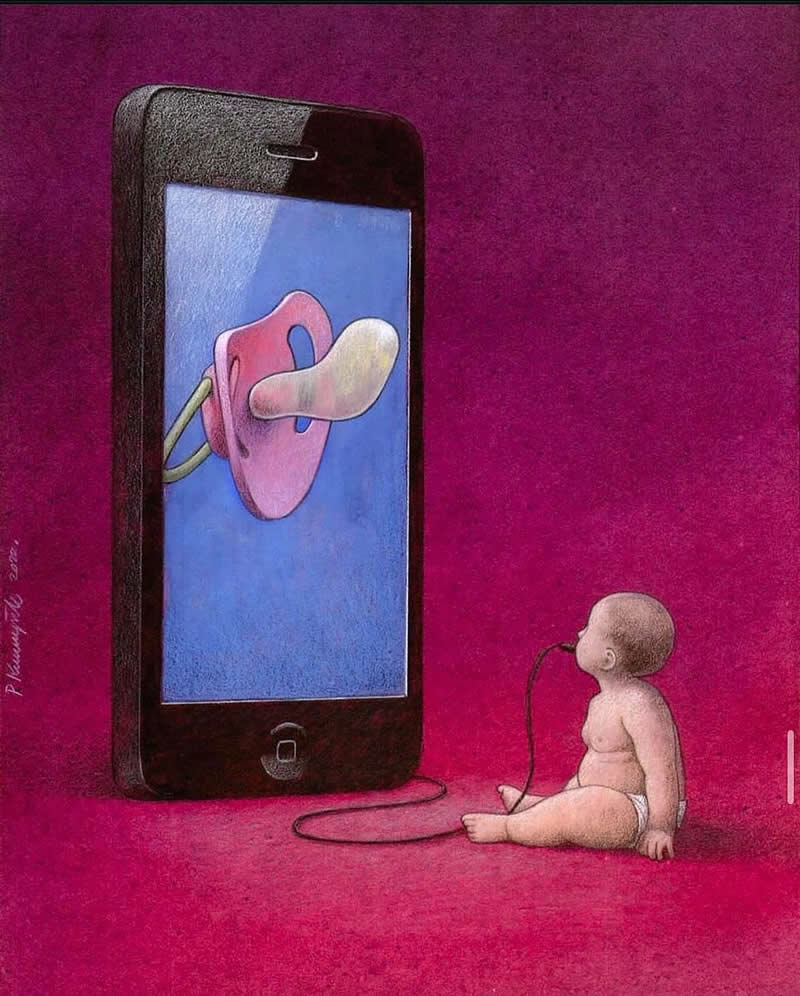
#7
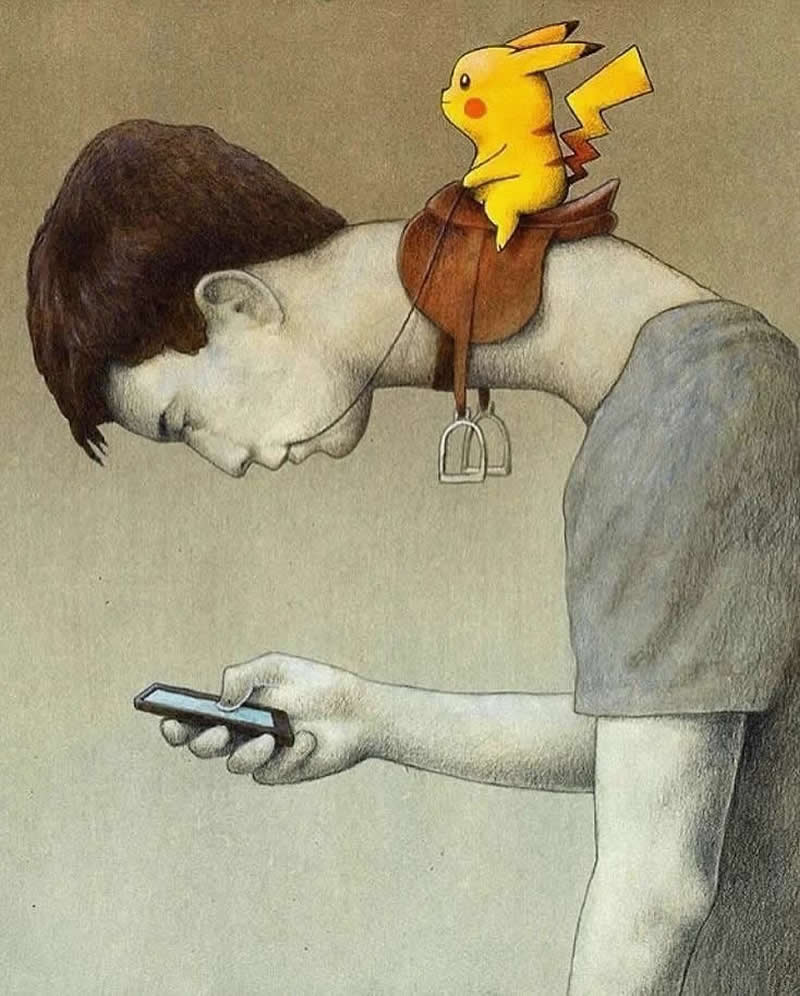
#8
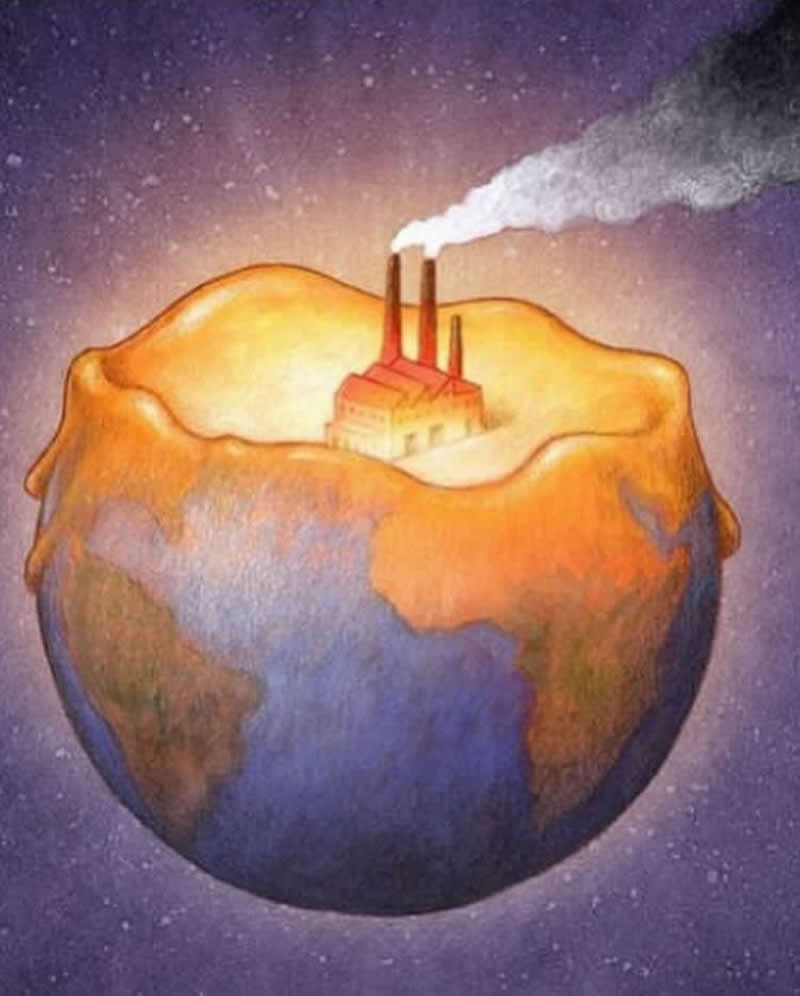
#9
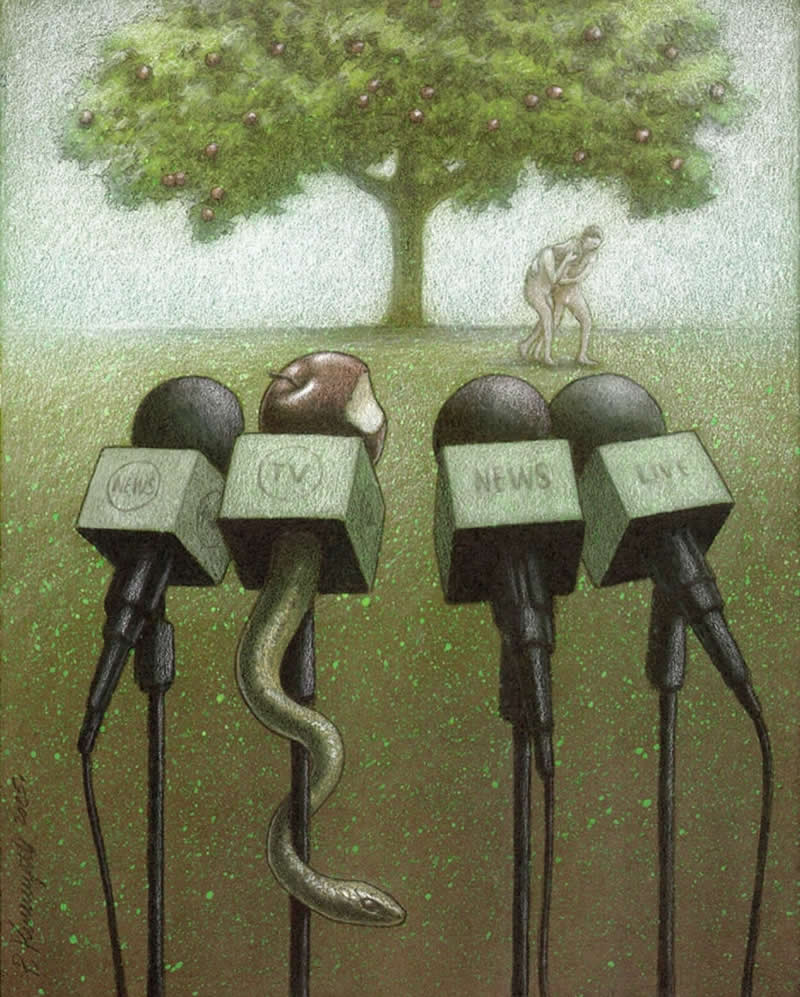
#10
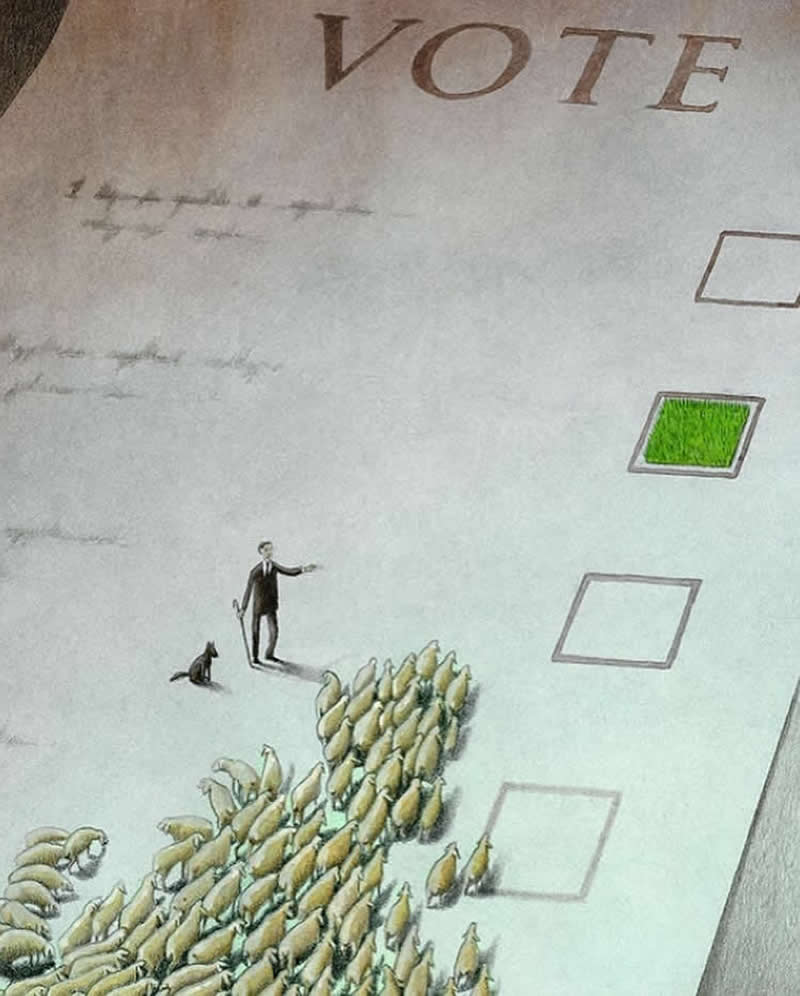
The Price of Progress
Through his sharp eye, Pawel explores how technology and consumerism have reshaped humanity. His illustrations often feature humans enslaved by their own creations—phones, machines, or money. These pieces highlight how progress, when unchecked, turns innovation into isolation. The message is simple but chilling: in chasing convenience, we’ve traded connection for control.
#11
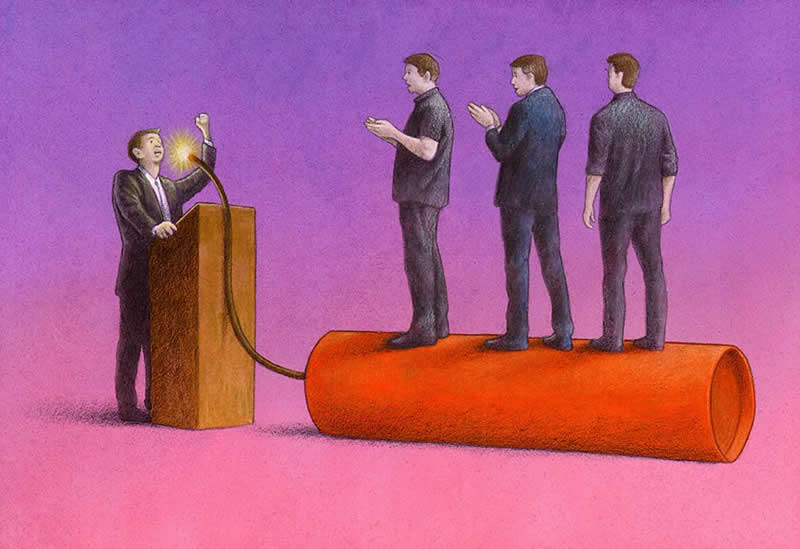
#12
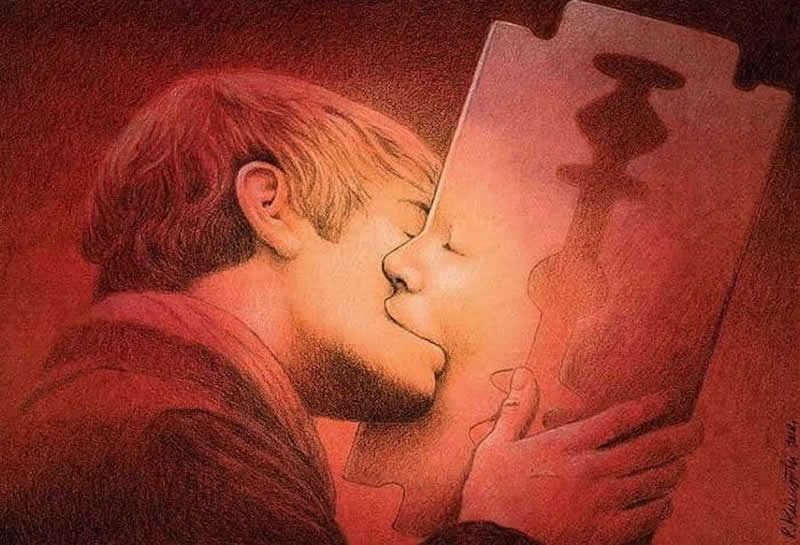
#13
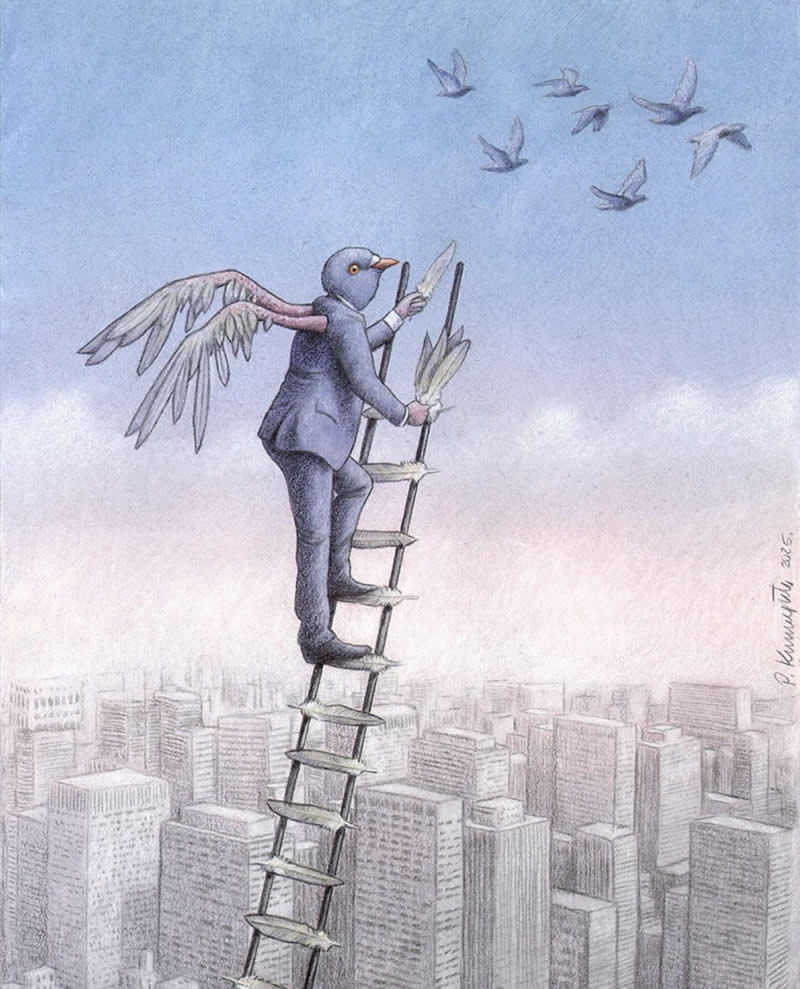
#14
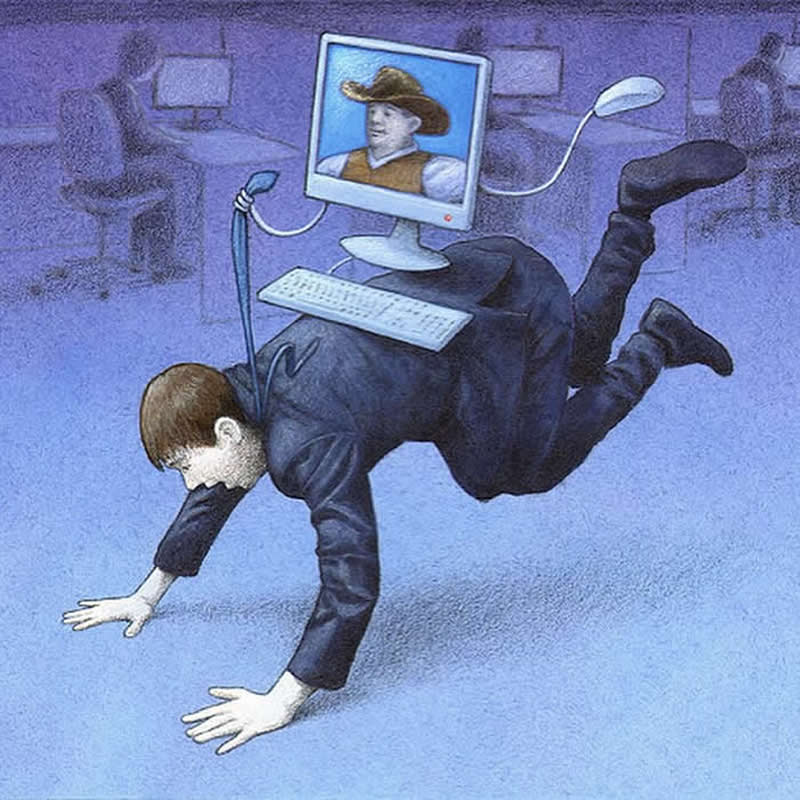
#15
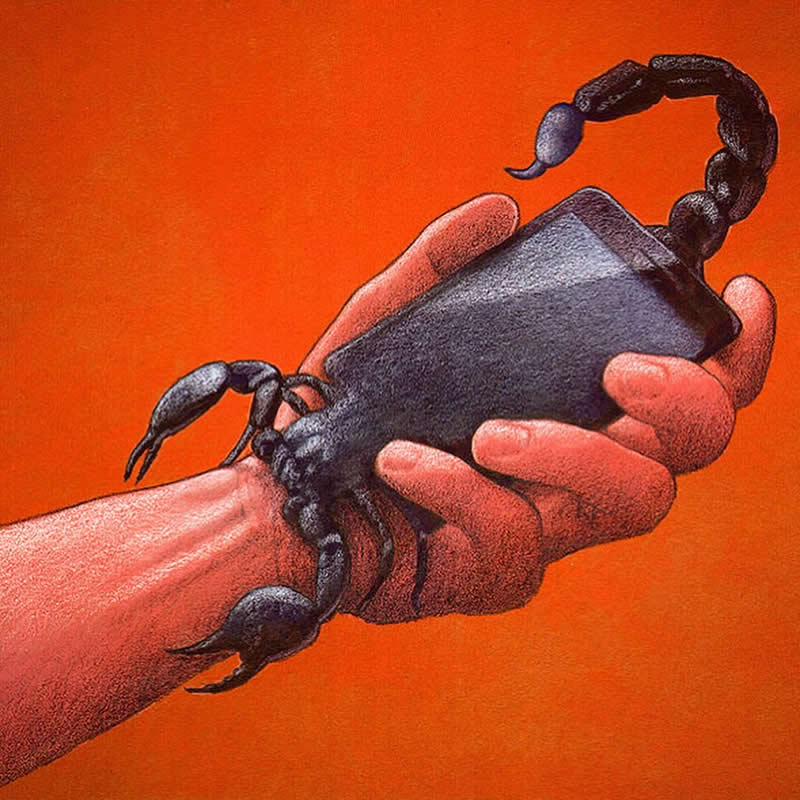
Politics and Power Games
Few artists dissect political hypocrisy like Kuczynski. His works portray leaders painting peace over war, or citizens puppeteered by invisible hands. The satire hits hard because it’s real—we recognize the headlines, the propaganda, the false promises. His political art doesn’t preach; it exposes. It makes you laugh first, then think twice, and maybe feel a little uneasy about what’s true.
#16
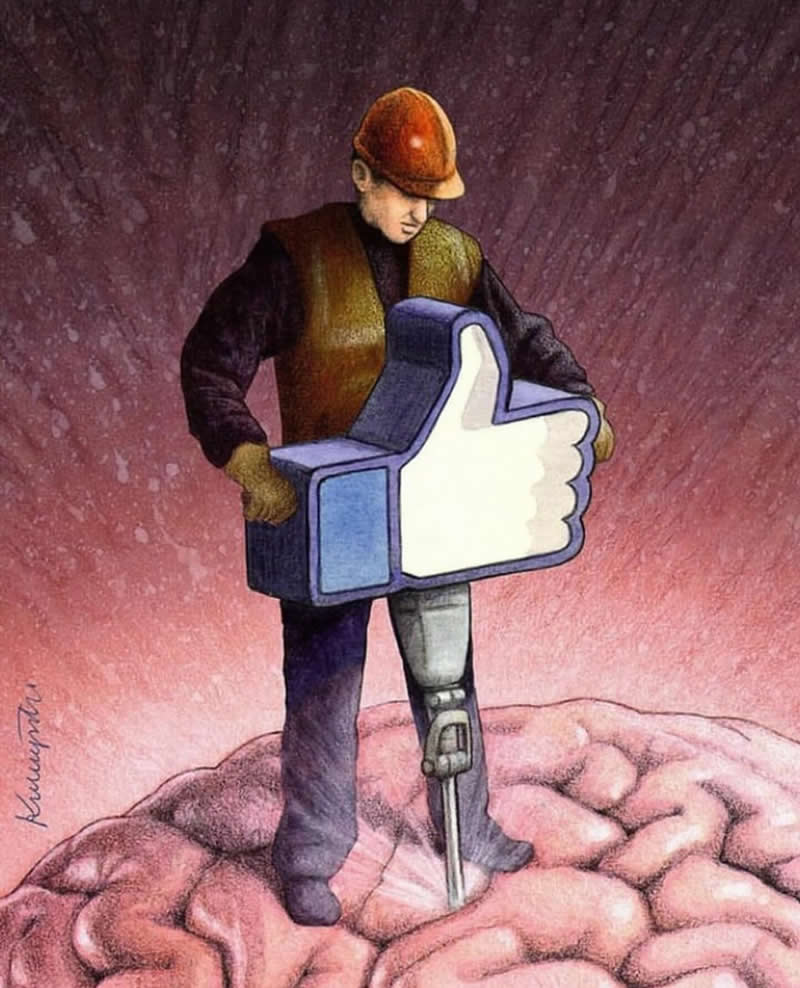
#17
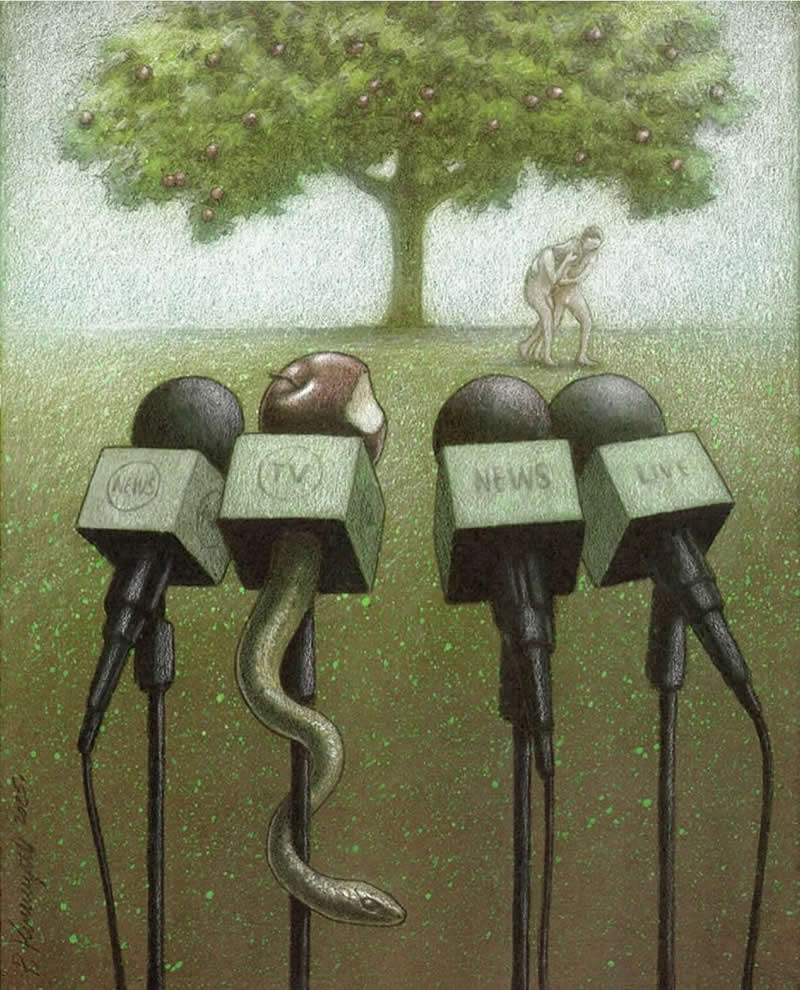
#18
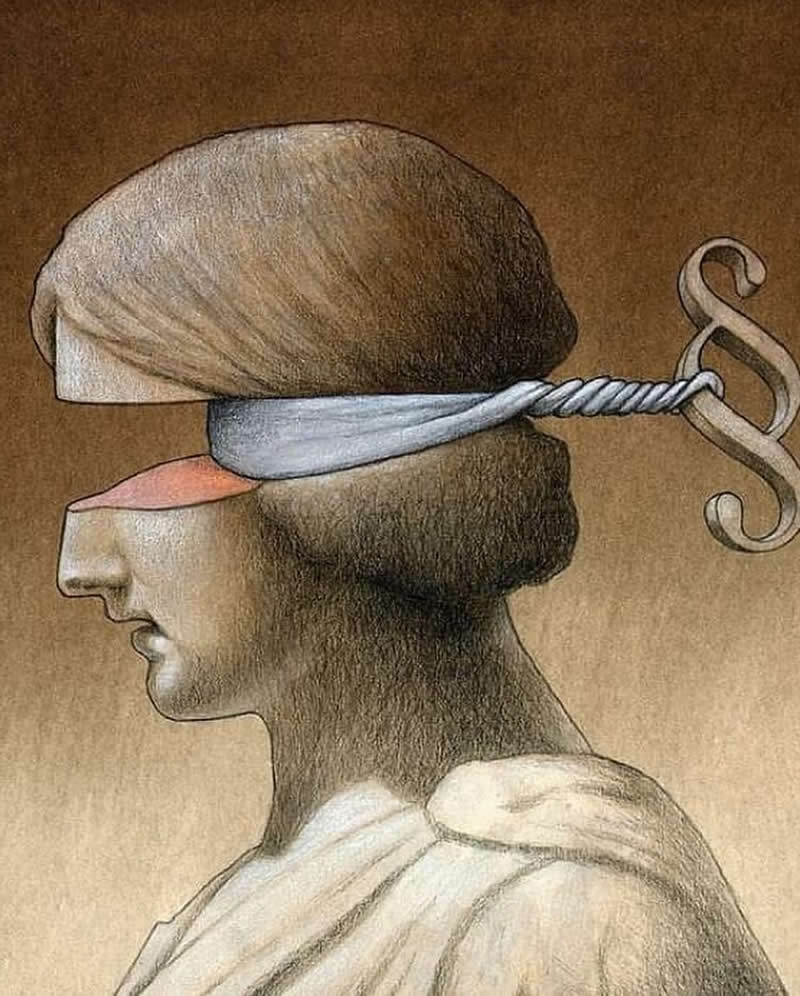
#19
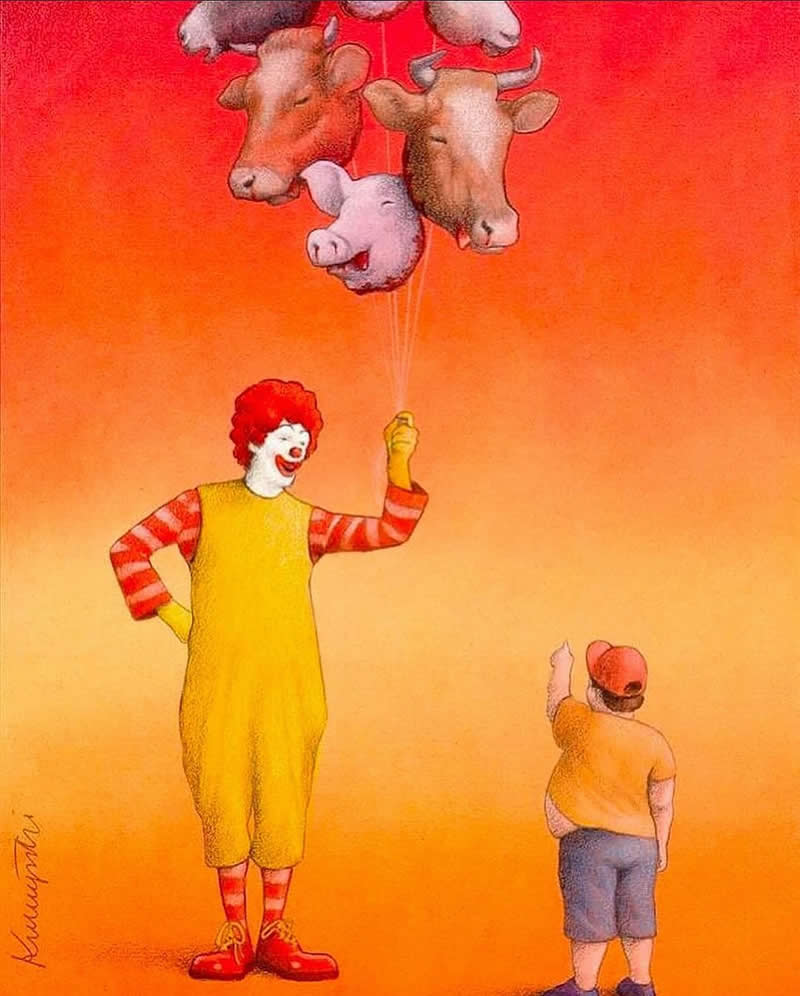
#20
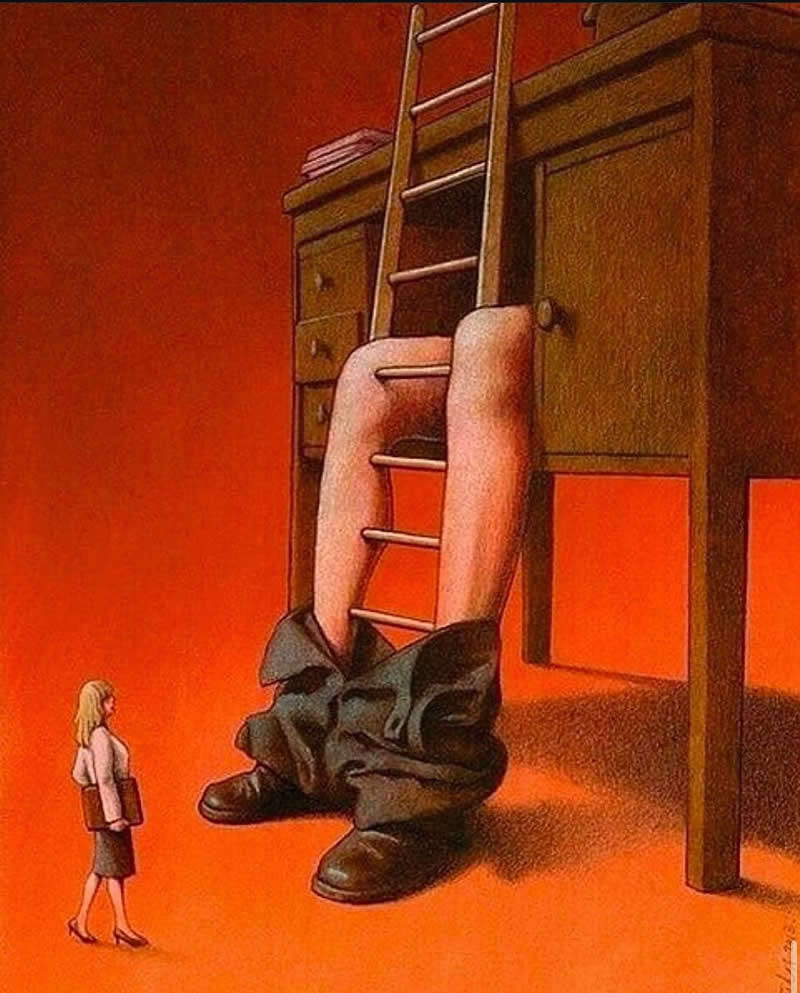
Social Media’s Digital Chains
In Pawel’s world, likes are the new currency, and attention is the addiction. His haunting depictions of people fed by smartphones or chained to screens feel painfully familiar. He transforms our everyday scrolling habits into dystopian scenes that reveal how dependent—and disconnected—we’ve become. Every post, every selfie, every “click” comes with a quiet cost we rarely notice.
#21
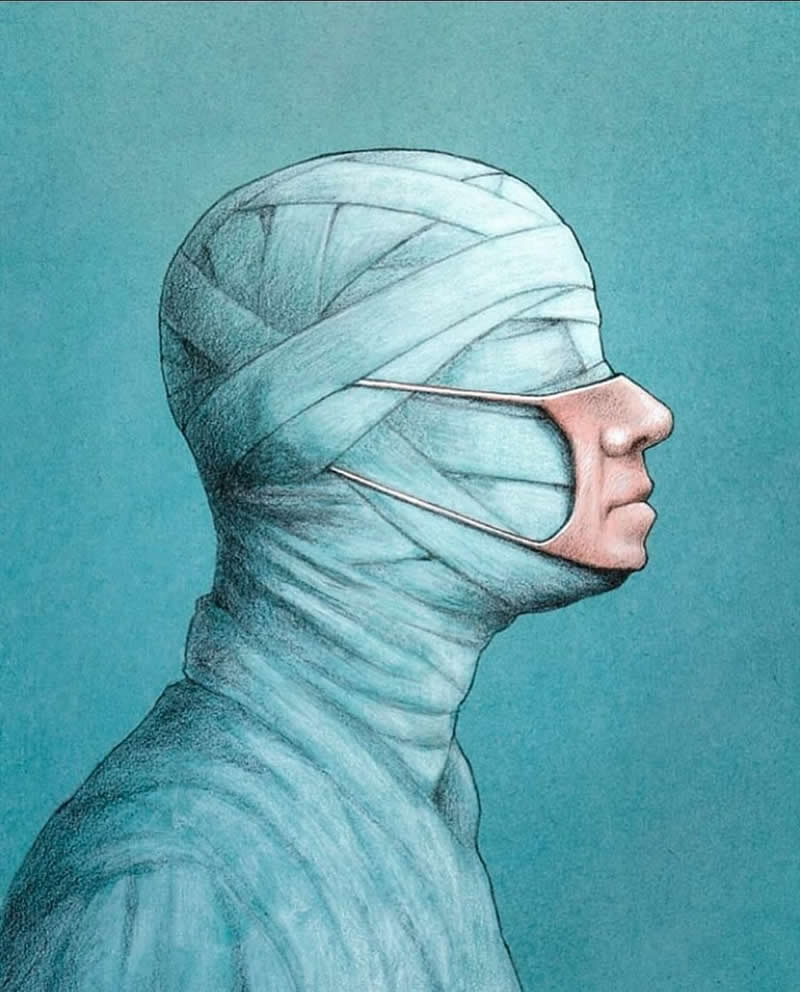
#22
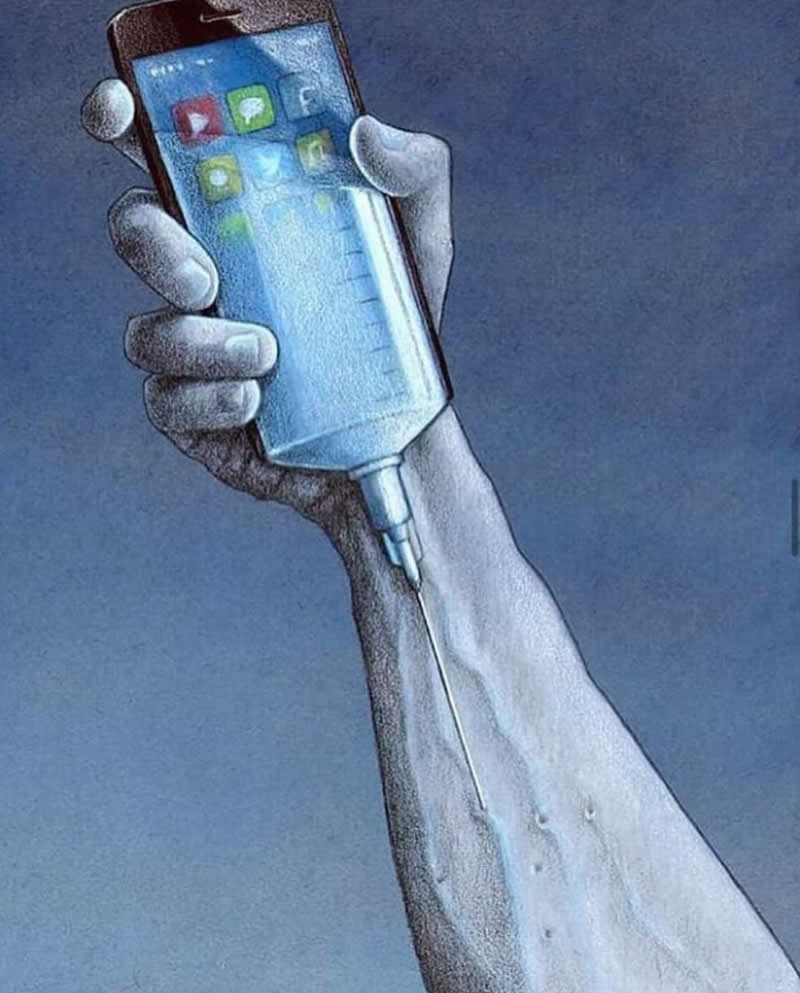
#23
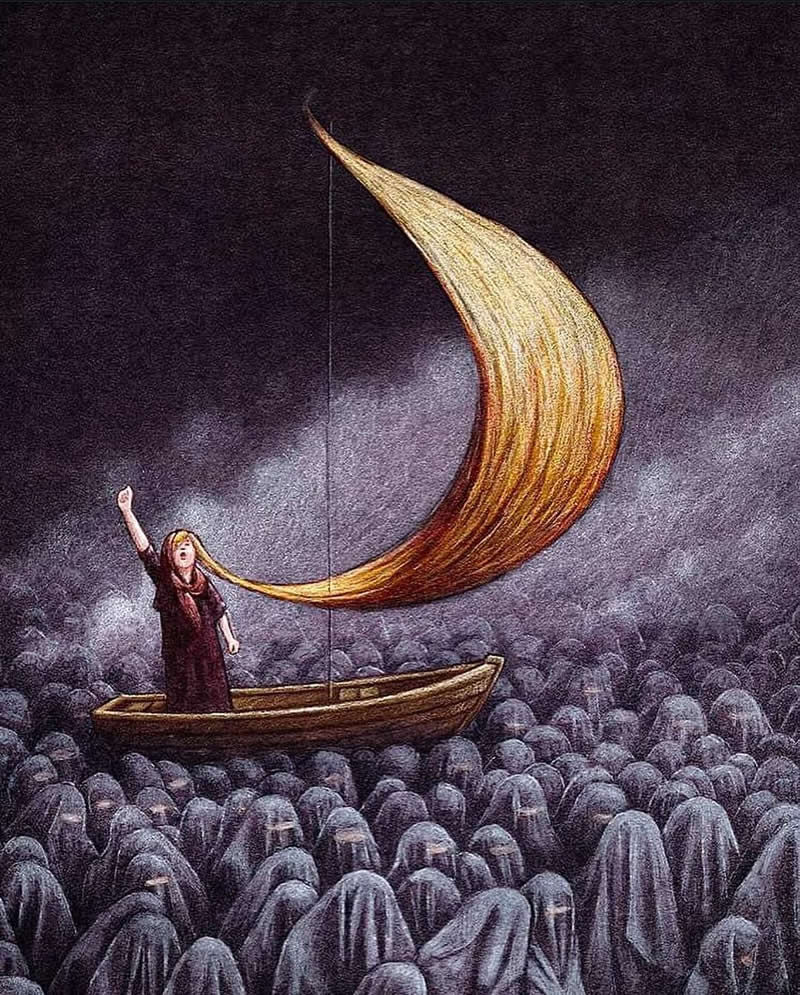
#24
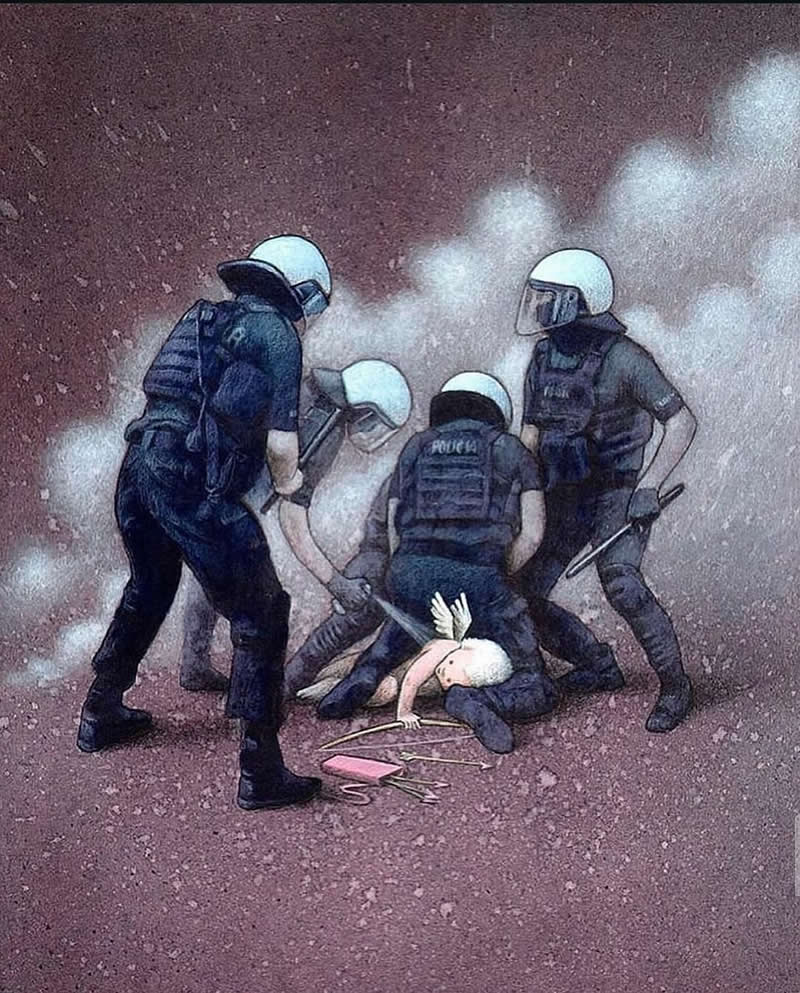
#25
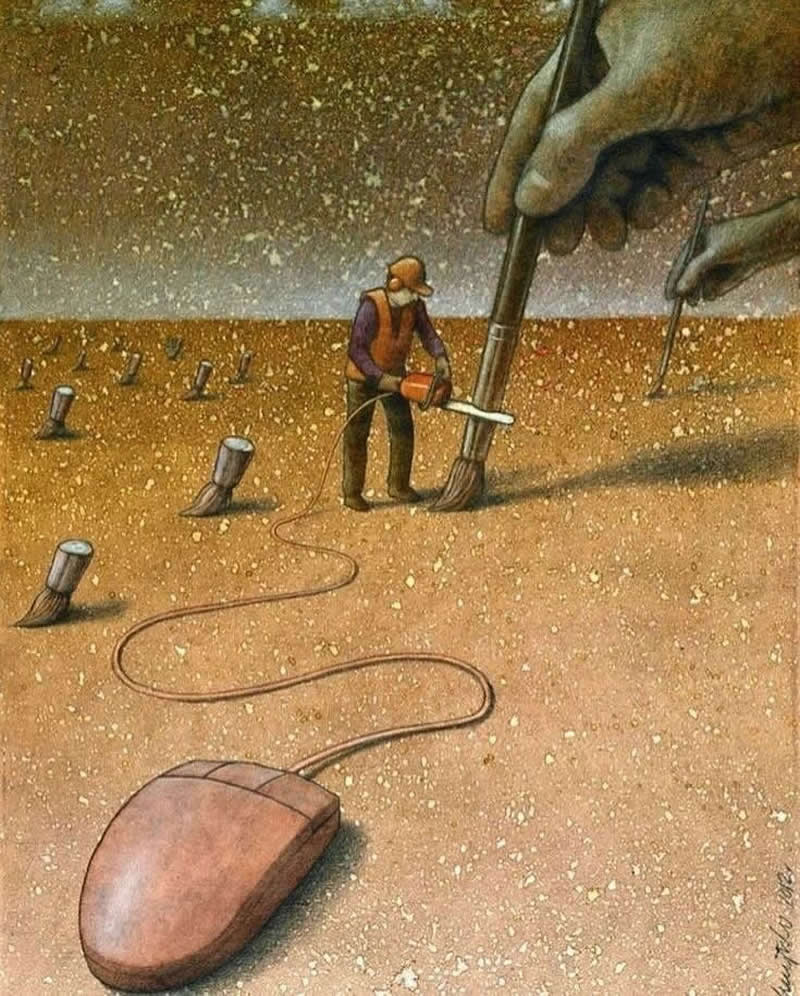
Hope in the Irony
Despite the dark humor and biting critique, there’s a spark of hope in Kuczynski’s art. Each piece invites awareness—a chance to wake up and see things differently. His work reminds us that satire isn’t just mockery; it’s a form of truth-telling. By laughing at our flaws, we begin to see them clearly—and maybe, start to change them.
#26
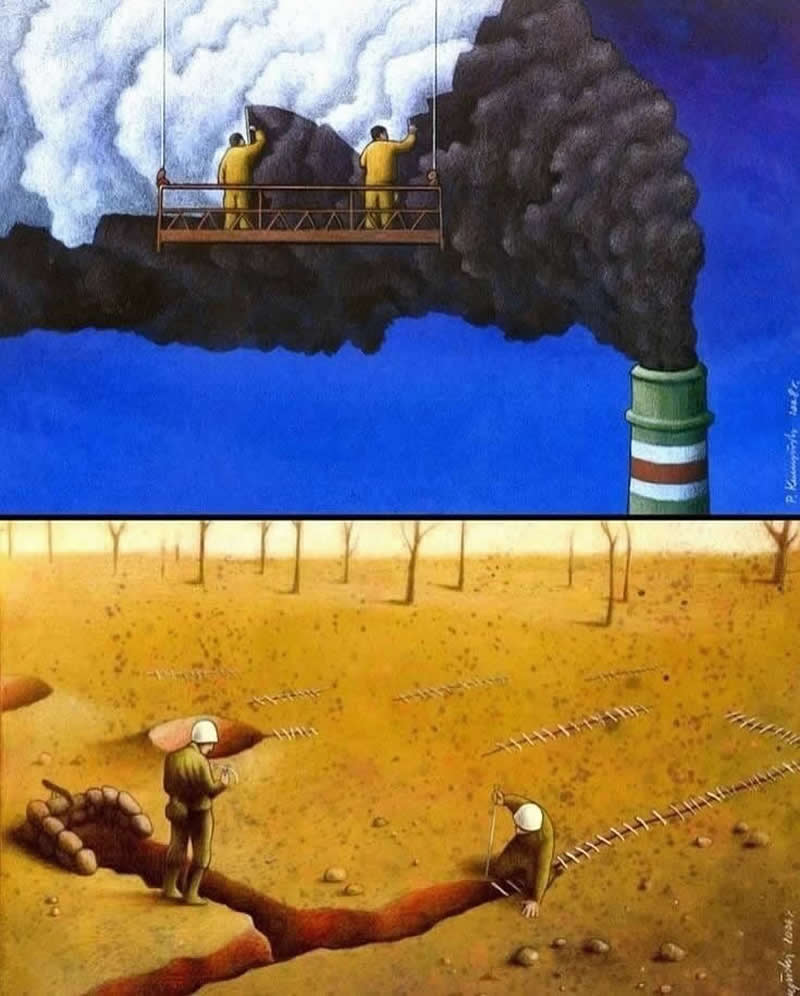
#27
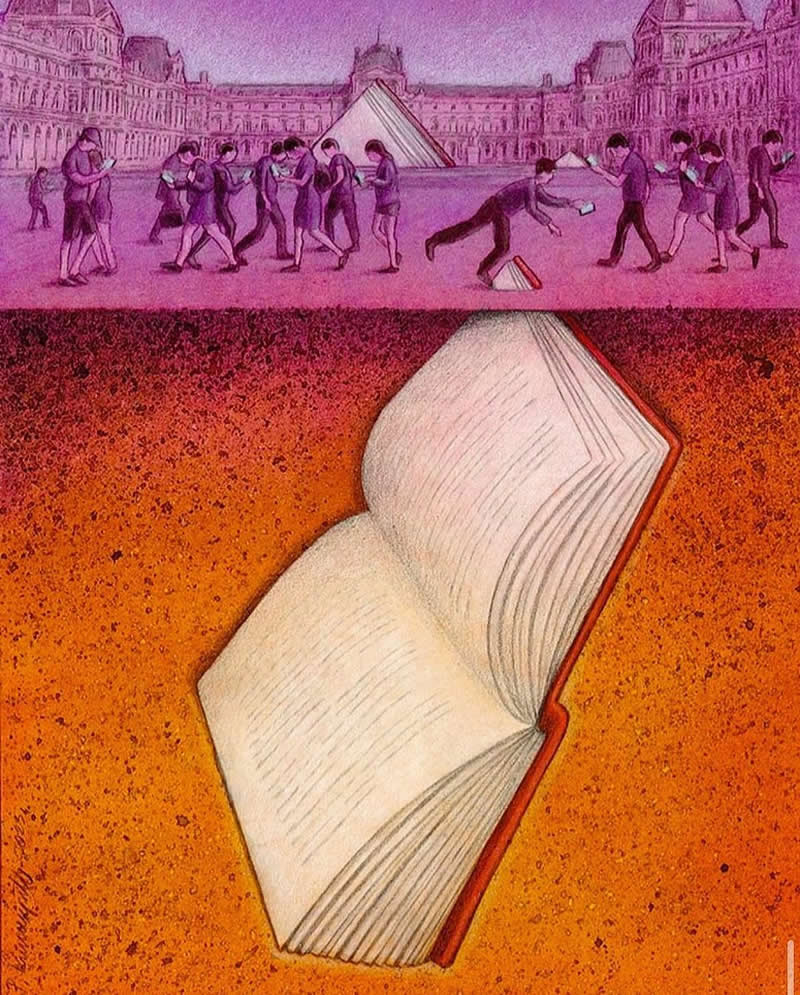
#28
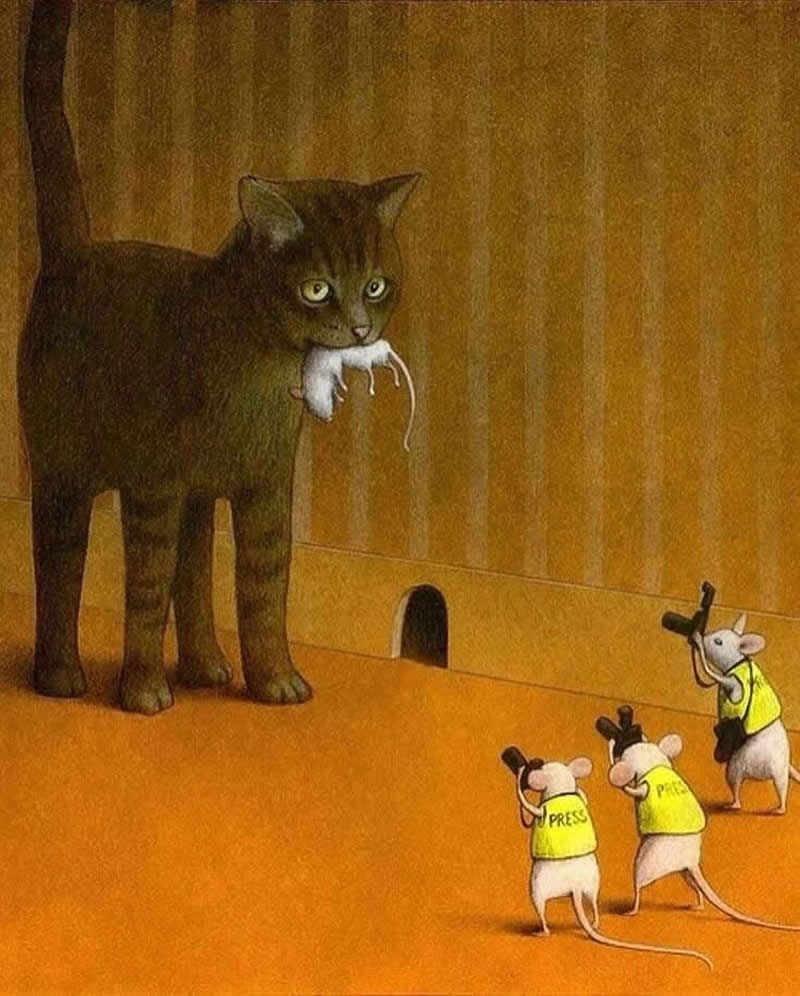
#29
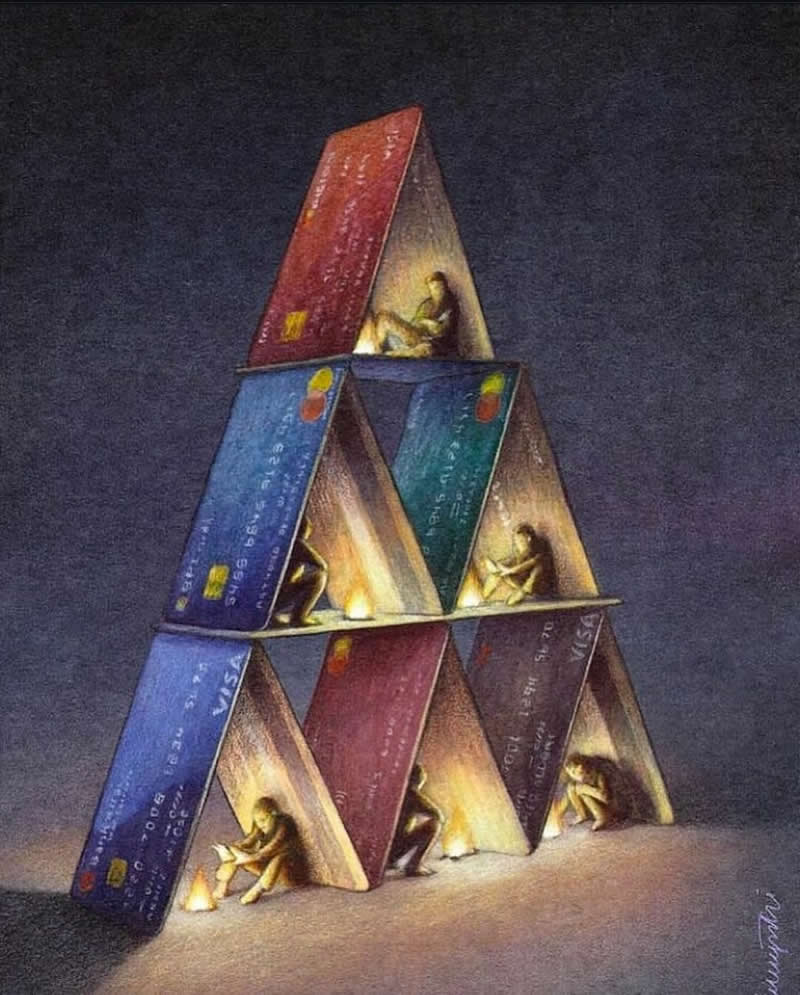
#30
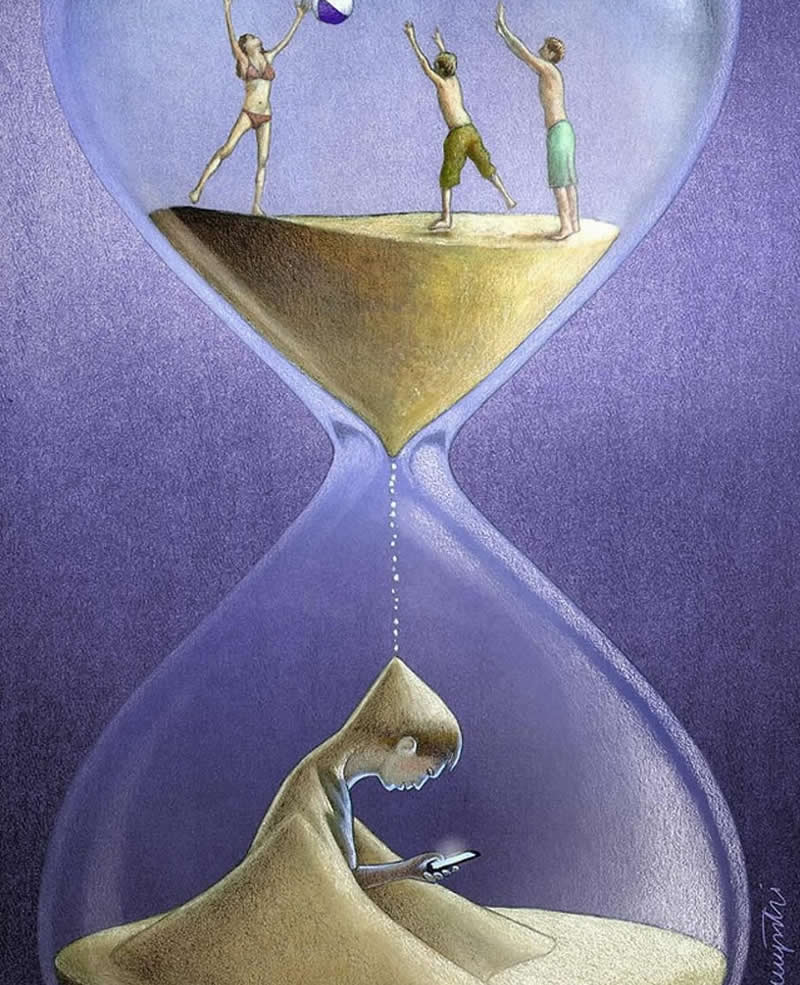
#31
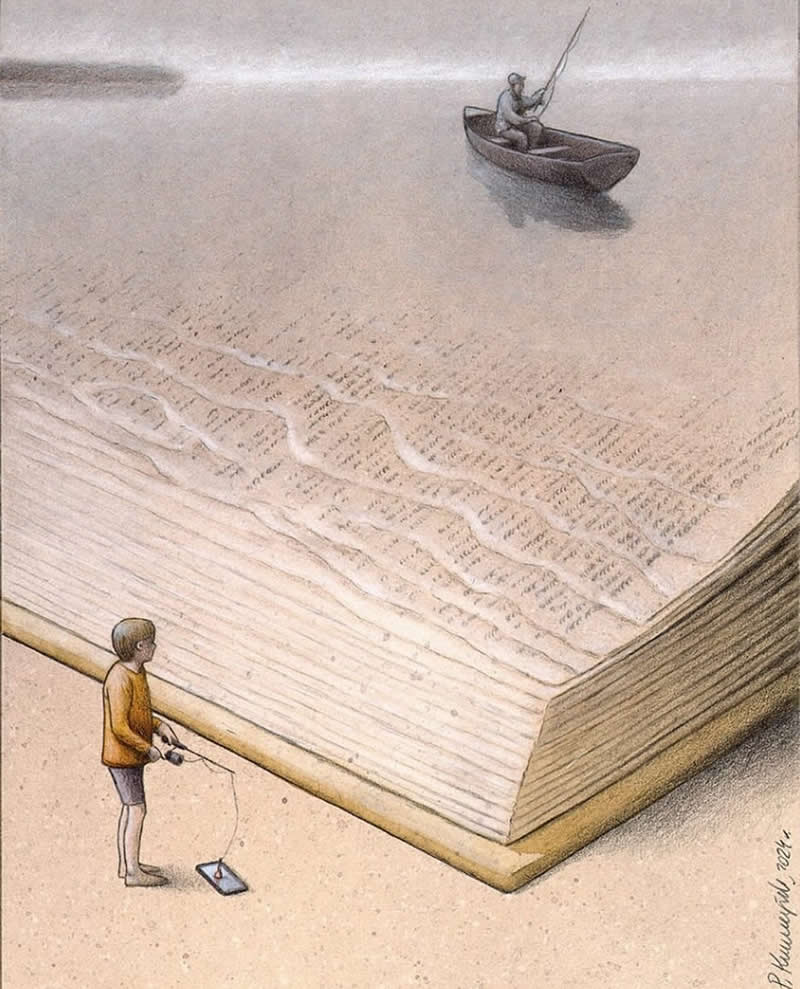
#32
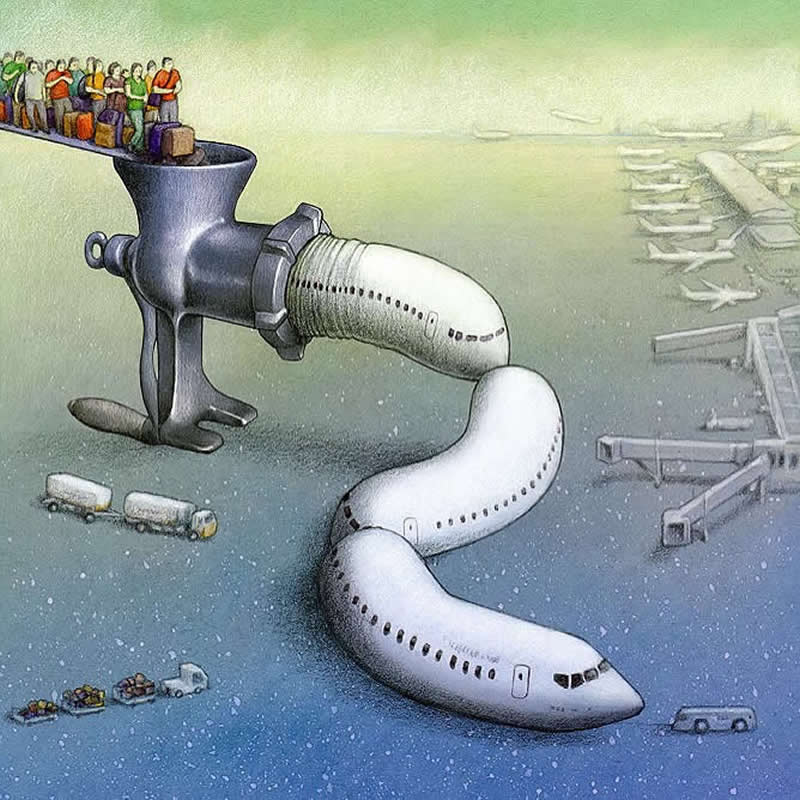
#33
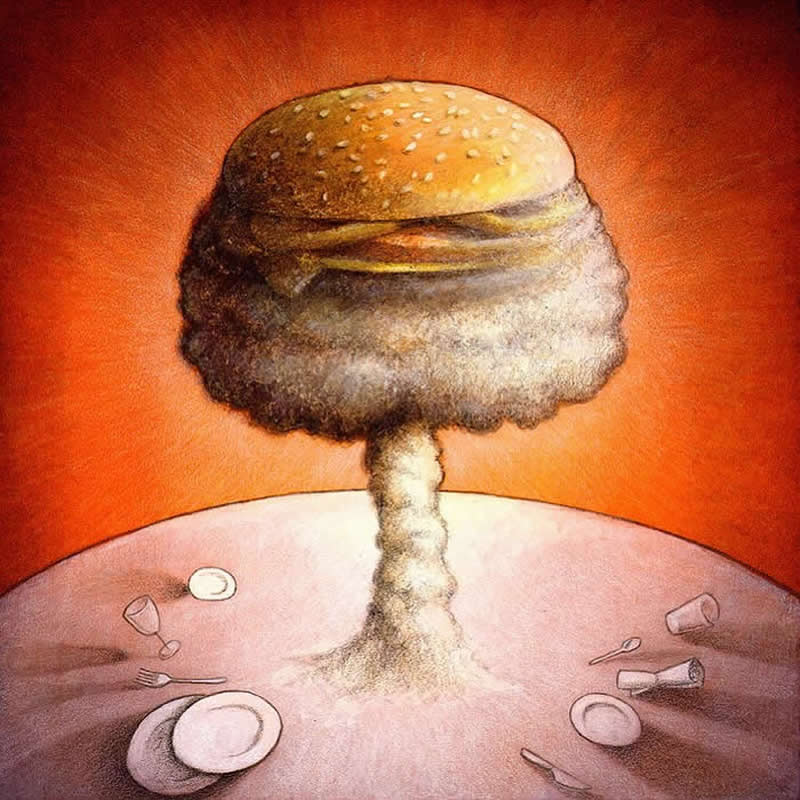
#34
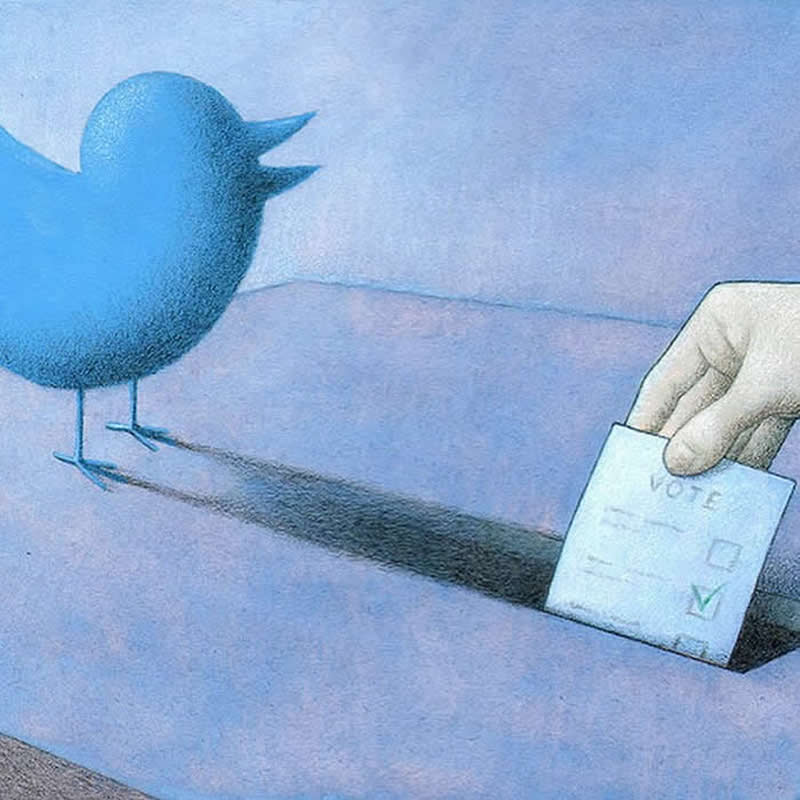
#35
